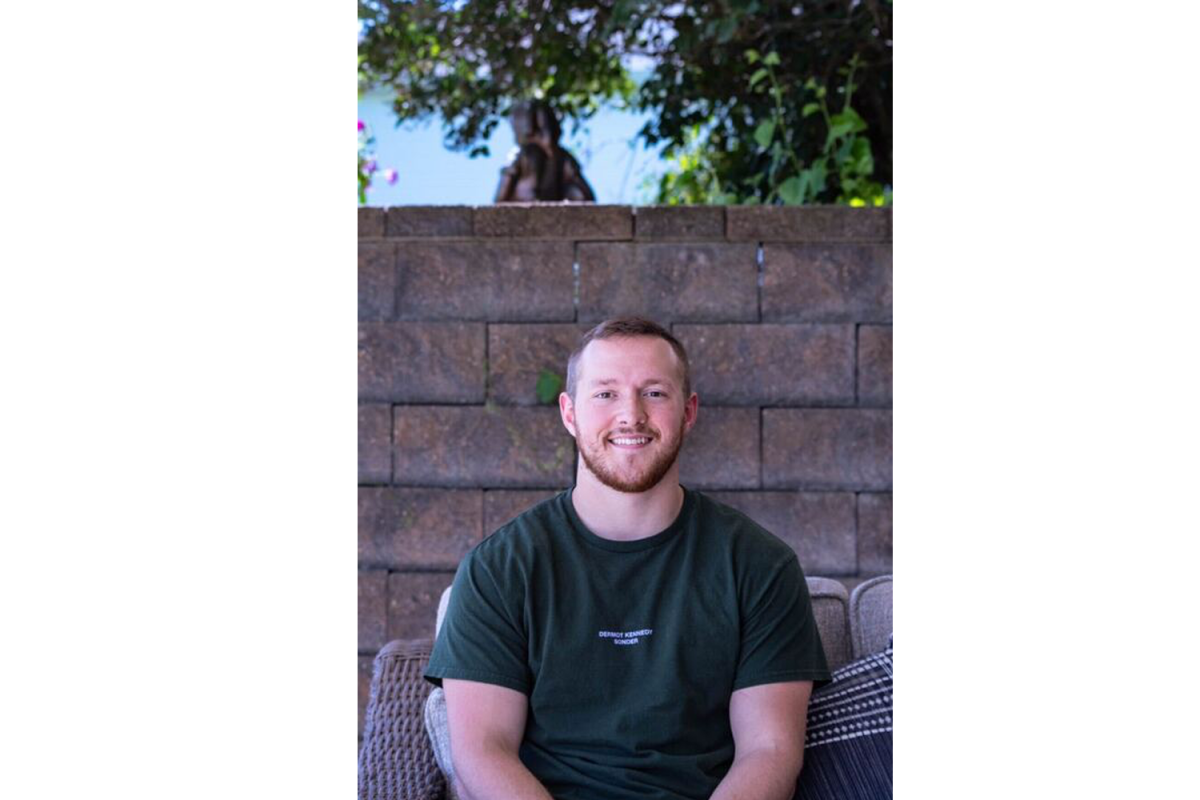Reece A. Caven is a senior at the University of Iowa studying creative writing. Caven decided he wanted to pursue writing while attending basic training in the National Guard during his enrollment. Throughout his semesters at the UI, Caven chipped away at a passion project that became his debut fantasy epic novel, “The Liar and the Knight.” The book was independently published through IngramSpark and is now available on Amazon.
This interview has been edited for length and clarification.
The Daily Iowan: Did growing up in Iowa City influence your choice to pursue writing?
Caven: Being in Iowa City cemented my decision to be a creative writing major for sure, but it wasn’t something I thought about when I was a kid. It was a happy coincidence that I grew up in Iowa City all my life, and only after I decided I wanted to be a writer did I find out that this is the place to do it.
How did your creative writing workshop classes help shape the novel?
I workshopped the first chapter in class, and then I worked pretty closely with my teachers on a couple of other chapters throughout writing. School helped me a lot with it. The workshop really helped with the action scenes, particularly. I gauged how they were reading, if they made sense, if they were easy to follow, whether or not the main character was likable.
Without the workshop, I’m just sort of guessing. I might think the action scenes are fun and easy to follow, but the feedback from other people hones those aspects. I hired a professional editor on Reedsy. My editor was the person who told me to rewrite my first chapter and bring it to the workshop. I had the whole manuscript ready and then tweaked it through feedback in school.
Do you find it easy to take feedback, whether it be from students or editors?
Maybe it’s a self-confidence thing, but I always assume everyone else is right about my writing. That has been a problem in the past in workshops, but I learned I need to trust myself more. I needed to be willing to say, ‘I’m right about this for this piece.’ I’m good at taking feedback, but now it’s about deciding whose feedback I trust the most. If I hear five people say an action sequence doesn’t work, I’ll listen to them.
The class determines it, too. Sometimes, if there’s someone in the class whose writing I like, I will be more inclined to listen to their advice. Not because I don’t respect the other writers, but because I like this person’s writing so much and want to write like them. There was a super detailed paragraph in my book that I fought for after my editor said I should take it out. It was too long and descriptive, but I liked it a lot, so I kept it.
What did the process of writing a novel while still keeping up with student life look like?
The whole process was about two years with editing, creating the cover, things like that. I was working during the semester. I would go to Nodo downtown daily between classes and write a few pages. Nearly all of it was written during the fall semester of my second year. A majority of the writing took place in hour-and-a-half segments between classes.
Was it a challenge to find the free time outside classwork to write?
For this particular project, it came very naturally. I usually find it hard to write my own material, but this story is escapist and deals with themes that felt very personal to me. So, it felt like an escape from homework and real life.
What has the publicity process been like for you?
I didn’t even have social media when I was about to publish the book. I had to redownload all of that, including TikTok, unfortunately. Marketing is huge, and it’s not something I’m great at, but that’s another area where YouTube videos come in handy. It’s a new thing for me to learn, I’ve not mastered it, but it’s fun to figure out. It’s been cool to learn how to run ads on social media sites.
How did you learn the steps required to get the novel published?
I did a lot of my research by watching YouTube videos, which I don’t know how advisable that is, but it worked for me. I got a lot of advice on publishing and hiring an editor, how to spot problems when working with cover artists and editors, but a lot of it was just a leap of faith. I was always sure to ask for samples no matter who I was working with on the book.
Many young writers don’t have exposure to publishers. How did you go about publishing this book?
There’s many different self-publication companies. I went through IngramSpark because they have a record of getting books in physical stores, which is a goal of mine. I did publish through Amazon since that’s where a majority of the market is nowadays, but getting my book in stores is a dream of mine.
Publishing on Amazon is very simple, though. You set all your pricing, all your summaries, everything like that. Anybody can do it. I was focused on making a high-quality indie-published book. I don’t read a lot of indie-published books, but I feel like the stereotype is that they’re not as popular as major publications for a reason. That could be completely untrue, but it was what made me decide to spend so much on editing, getting the cover, things like that, so it wouldn’t feel like just another independent novel. I really did my due diligence to get professionals to bring it together.



